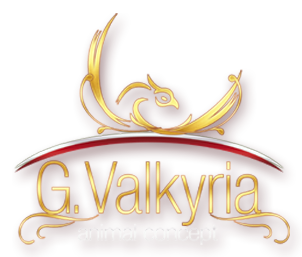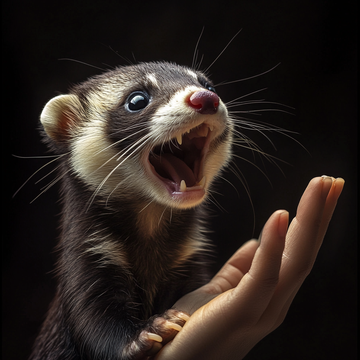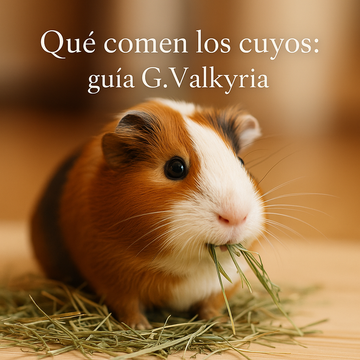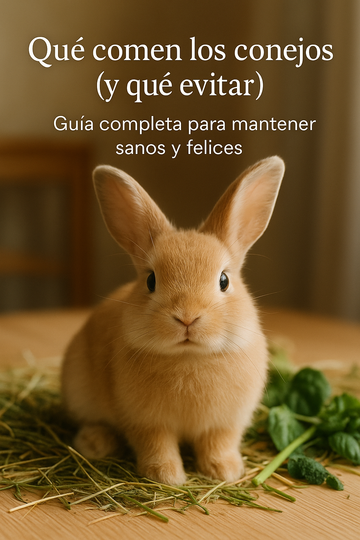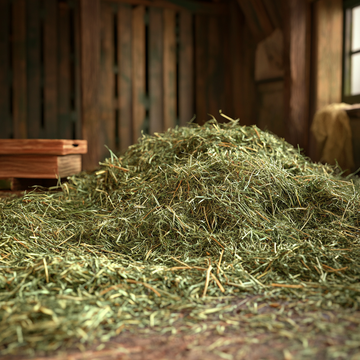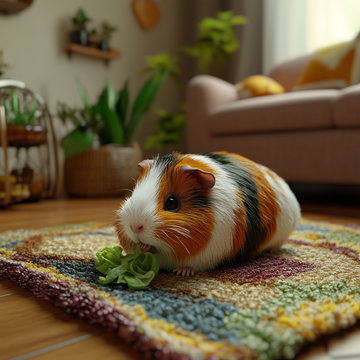At G.Valkyria, we understand that ferrets are more than just pets; they are intelligent, curious, and energetic companions that can fill your home with joy and fun 🏡💖. If you are thinking of adopting a ferret or already own one, this comprehensive guide will provide you with all the essential information on basic care, feeding, habitat size, and everything else you need to properly care for your new friend. Join us on this journey to becoming a ferret care expert! 🌟
Getting to Know Your Ferret 🦡
Ferrets ( Mustela putorius furo ) are domesticated carnivorous mammals that have been human companions for centuries. Key features:
- Life Expectancy : Between 6 and 10 years with proper care.
- Size : They reach between 40 and 60 cm in length, including the tail.
- Weight : Between 0.7 and 2 kg , with males generally larger than females.
- Behavior : They are sociable, active animals and require daily interaction.
G.Valkyria Tip : Ferrets are very curious animals. Make sure to provide a safe and enriched environment to keep them happy and healthy 🥰.
Basic Care 🛠️
Habitat Size and Configuration 🏠
-
Enclosure Size :
- Minimum Recommended : A cage measuring 90 x 60 x 70 cm .
- More Space is Better : If possible, provide a larger enclosure or safe area where they can explore.
-
Cage Type :
- Multi-level : Ferrets love to climb and explore different levels.
- Metal Bars : Make sure the gaps do not allow for leaks (no more than 2.5 cm ).
-
Substrate and Bed :
- Safe Options : Cotton sheets, soft blankets or hammocks.
- Avoid : Cedar or pine wood chips, as they can be toxic.
-
Essential Accessories :
- Litter Boxes : Ferrets can be trained to use a litter box, similar to cats.
- Hiding Places and Tunnels : Provide tubes and hiding places to stimulate their natural instinct.
- Food and Water Dishes : Heavy and resistant to tipping; bottle-style waterers are also suitable.
G.Valkyria Tip : Keep the habitat clean and safe. Ferrets are expert escape artists, so check regularly for possible escape points 🔍.
Food 🍖
Ferrets are strict carnivores , meaning they require a diet rich in animal protein.
-
Commercial Food for Ferrets :
- Characteristics : High in protein (minimum 35%) and fat (minimum 20%), low in fiber and carbohydrates.
- Options : Specific feed for ferrets available in specialized stores.
-
Raw or BARF Diet :
- Includes : Raw meat, meaty bones and organs.
- Caution : Consult a veterinarian to ensure they are receiving all the necessary nutrients and avoid the risk of bacteria.
-
Snacks and Prizes :
- Safe Choices : Small amounts of unseasoned cooked meat.
- Avoid : Sugary, salty or processed foods.
-
Fresh Water :
- Availability : You should always have access to clean water.
Foods to Avoid 🚫 :
- Fruits and Vegetables : Ferrets cannot digest plant fiber well.
- Dairy : Can cause diarrhea and upset stomach.
- Chocolate, Caffeine and Alcohol : Highly toxic to ferrets.
- Grains and Carbohydrates : Can lead to long-term health problems.
G.Valkyria Tip : Feed your ferret several times a day in small portions. Its fast metabolism requires constant access to protein-rich foods 🍗.
Handling and Socialization 🤝
-
Initial Adaptation :
- Give him time to get used to his new surroundings.
- Provide old clothes with your scent on them so they can get familiar with you.
-
Safe Driving :
- Clean Hands : Wash your hands before handling.
- Proper Support : Hold the ferret with both hands, supporting its body.
-
Playing Time :
- Dedicate at least 2 to 4 hours daily outside the cage for exercise and socialization.
- Environmental Enrichment : Use interactive toys, balls and tunnels.
G.Valkyria Tip : Ferrets are very active and playful. Daily interaction is key to keeping them happy and preventing destructive behaviors 🐾.
Health and Wellness 🩺
-
Visits to the Veterinarian :
- Initial Checkup : When you acquire your ferret.
- Annual Check-ups : For vaccinations and health check-ups.
-
Important Vaccines :
- Rabies : Mandatory in many places.
- Distemper : Highly recommended, as canine distemper is fatal to ferrets.
-
Sterilization and Decentering :
- Sterilization : Recommended to avoid health and behavioral problems.
- Decentering : Although it reduces natural odor, this is a controversial procedure. Consult your veterinarian.
-
Signs of Illness :
- Behavior Changes : Lethargy, loss of appetite.
- Physical Symptoms : Diarrhea, vomiting, difficulty breathing.
G.Valkyria's advice : Observe your ferret daily and go to the vet if any signs of illness appear. Early detection is vital 🩺.
Having a ferret as a pet is an enriching experience that requires commitment and love 🦡❤️. By providing a suitable habitat, a balanced diet and constant attention, your ferret will be a faithful and cheerful companion for many years. At G.Valkyria, we are dedicated to providing you with the best advice and products to ensure the well-being of your pet. Thank you for trusting us on this wonderful journey! 🌟
Share your experience!
Do you have any tips or anecdotes about caring for ferrets? 🦡💬 Share with us in the comments and let's help other ferret lovers provide the best care possible!
We hope you find this article helpful! If you have any questions or need personalized advice, please feel free to contact us . At G.Valkyria, we are here for you and your energetic companion 🦡💕.

